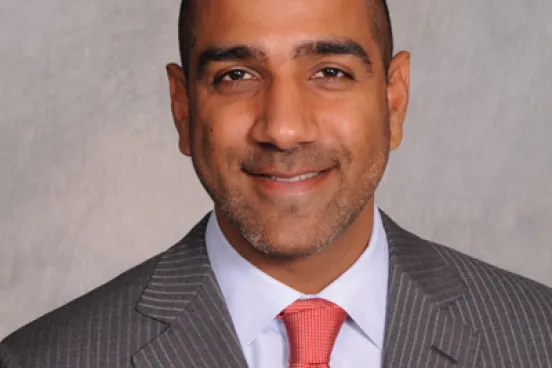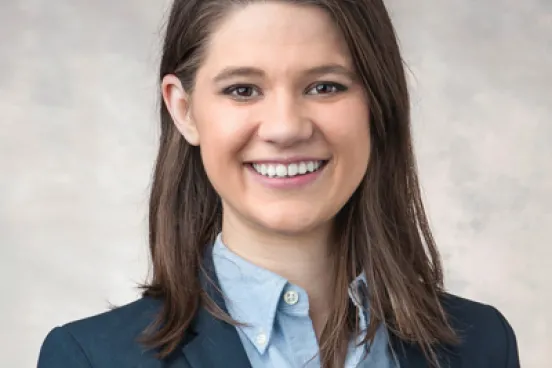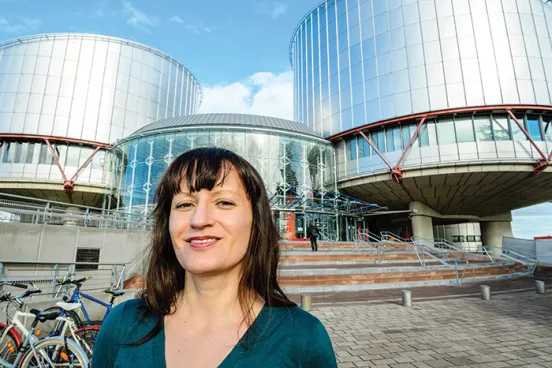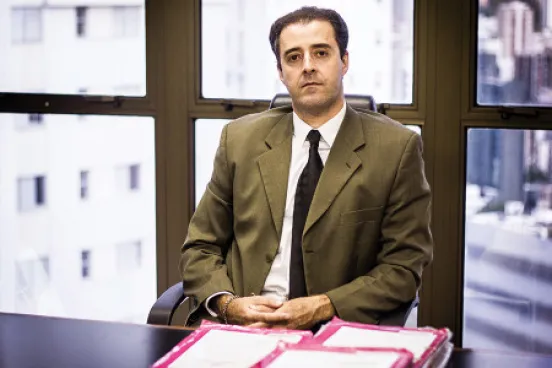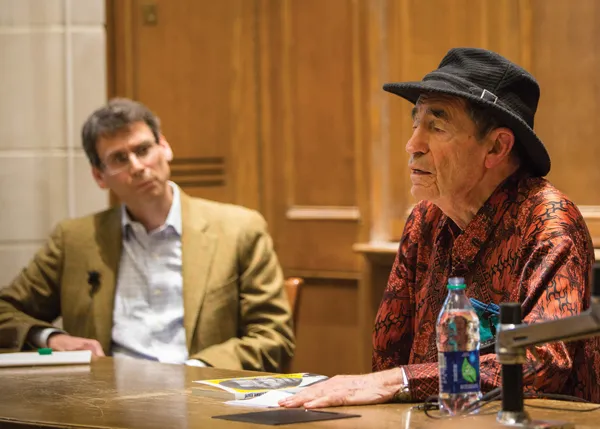
Justice Albie Sachs knew Nelson Mandela “before he was the Nelson Mandela,” and during this year’s William W. Bishop Lecture in International Law, he regaled a standing-room-only crowd with tales from the frontline of the anti-apartheid movement and South Africa’s burgeoning democracy.
Justice Sachs entered law school shortly after the beginning of the apartheid era and wasted no time getting involved in the fight against his country’s policy of legalized racial segregation. Having met Nelson Mandela early on in the struggle against apartheid, he had a firsthand view of Mandela’s rise to lead the movement.
“There were lawyers amongst those raided, accused, and put on trial for treason in 1956,” he said. “One of them stood out, quite literally: Nelson Mandela. He was taller than everybody, and he had an eloquence, a command of the situation, a focus—people would listen when he would speak. And that was the moment when Nelson Mandela started becoming Nelson Mandela.”
In what he called “act three” of his story, Justice Sachs skipped ahead to 1995, after apartheid had ended and when Mandela appointed him, along with 10 other judges, to serve as the first panel on the newly established Constitutional Court of South Africa. In what Justice Sachs described as one of the first tests of the strength of the Constitutional Court, Mandela accepted the Court’s decision to strike down one of his proclamations. “To me, that day was one of the most important,” he said. “That was the day South Africa became not just a democracy, but a constitutional democracy.”
Although South Africa still has a lot of work to do to combat ongoing corruption, racism, and inequality, Justice Sachs has confidence in its ability to keep moving forward. “We have a lively, free, open press; our judiciary is one of the strongest in the world; and we have a country with a constitution that enables the citizens to insist on the things that we were fighting for.”—AH
The Bishop Lecture was established by the friends and family of Professor William W. Bishop, a pioneer in the fields of international and comparative law, following his death in 1987.



